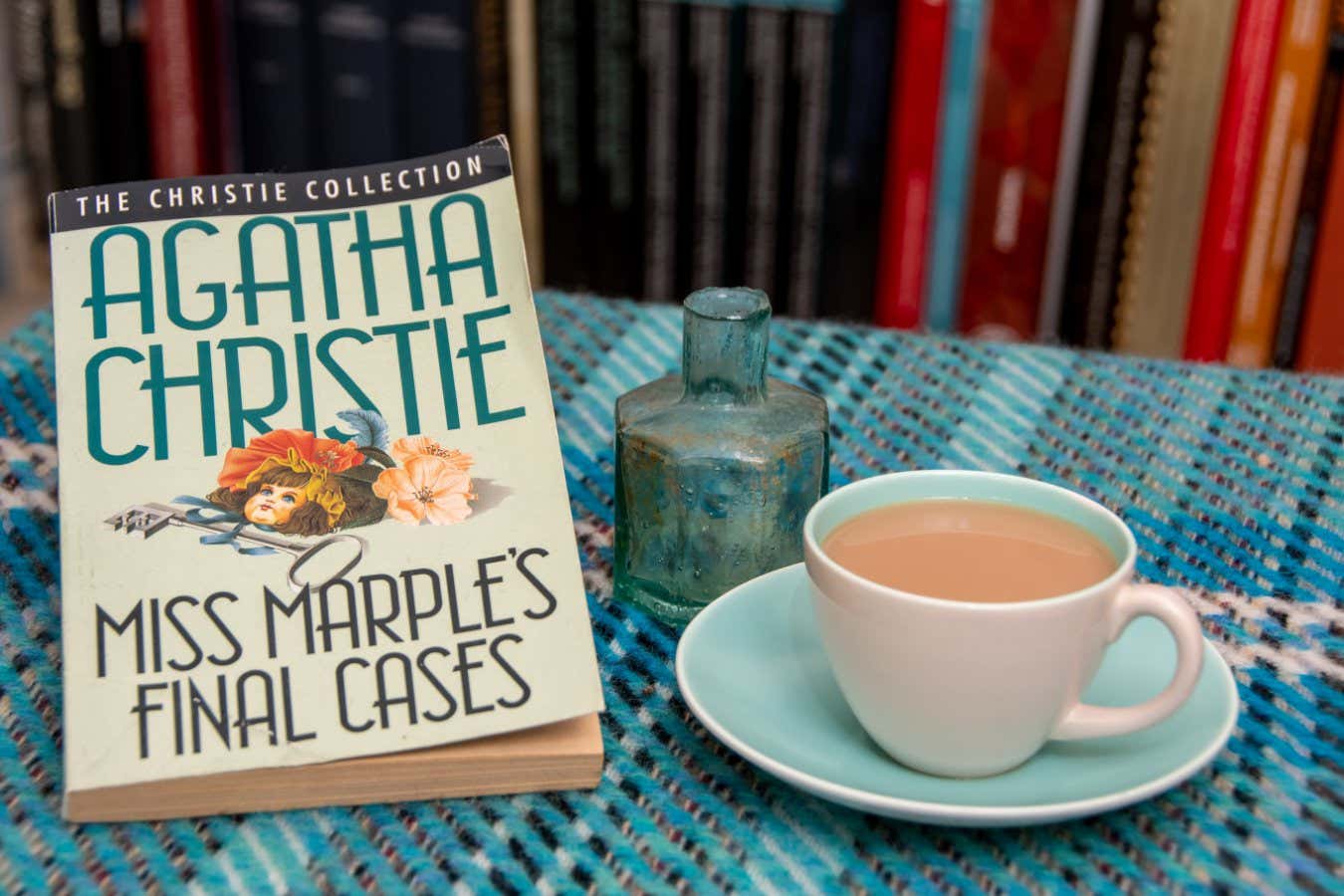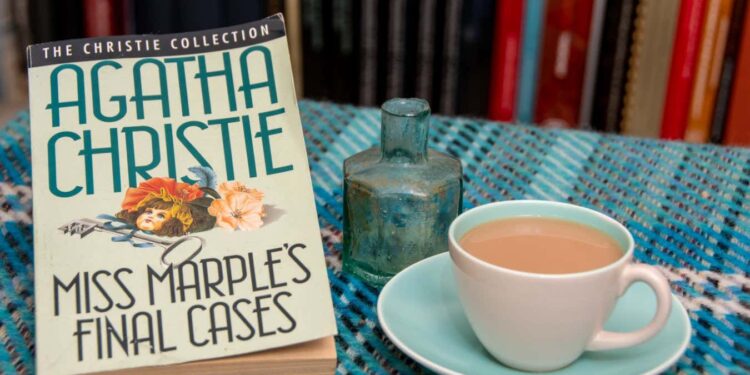
A talent for murder: Agatha Christie is one of the world’s bestselling writers
Shutterstock/Doodeez
V Is for Venom
Kathryn Harkup (Bloomsbury Sigma)
Agatha Christie’s five-decade writing career saw her poison dozens of her characters, supplying the killers in her stories with an assortment of deadly chemicals, including poisons and venoms produced by living organisms and delivered via injection.
Chemist Kathryn Harkup has visited their use before in 2015’s A Is for Arsenic. V Is for Venom: Agatha Christie’s chemicals of death looks at “the more unusual means of chemical killing that [make] Agatha Christie a true ‘Queen of Crime’.”
Christie’s murders were made all the more authentic due to her scientific background: she was a pharmaceutical dispenser before she became a bestselling writer, and she furthered her knowledge of toxicology while volunteering as a nurse during the first world war. Harkup presents a detailed but never overwhelming account of the substances at the centre of her stories – and how many of them didn’t come in small bottles conveniently marked “Danger”.
Spoiler: a dirty bandage that had recently dressed a cat’s ear infection is used to spread septicaemia in 1939’s Murder Is Easy, while the killer in Sparkling Cyanide harnesses carbon monoxide from coal gas. Harkup explains the science behind each murder, avoiding spoilers where possible. She considers, for example, the feasibility of a “poisoned dart hidden in an adapted cigarette” and the consequences of imbibing toxic hat paint (feasible and not good, respectively).
Harkup’s analysis stretches to the fictional poisons Christie invented, like Benvo from 1970’s Passenger to Frankfurt, a drug that causes its victim to become fatally benevolent (Harkup concludes that “apparently, this is a bad thing”).
Antidotes to the murder methods are outlined – CPR may have saved the life of the dinner party guest who had unknowingly ingested opioids in 1962’s The Mirror Crack’d from Side to Side, while real-life cases that likely inspired Christie’s plots are explained in asides.
Drugged drinks are used as a murder method in several of Christie’s novels. Harkup writes of the disgraced Scottish chemist who worked as a bartender in 1870s San Francisco, and whose chloral hydrate “knockout drops”, slipped into patrons’ beer glasses, would later take his name: Mickey Finn.
Harkup reveals that many of the drugs from Christie’s stories are still widely available. Barbiturates, as featured in 1933’s Lord Edgware Dies, are today prescribed as epilepsy treatments, such as Seconal. But she cautions against using Christie’s chemicals as “homicidal inspiration”, explaining that toxicology was “a little different at the time Christie was writing”. Would-be poisoners attempting to mimic her assassinations today would either be swiftly detected or else suffer a calamity.
Harkup balances the macabre with the scientifically intricate. For every passage detailing the chemical history of chloroform, there are accounts of real murders that Christie’s imagination may have influenced. We learn of a poisoned billionaire who in 2011 died after eating cat-meat stew laced with gelsemium, the same plant featured in 1927’s The Big Four. Harkup also deconstructs the hydrochloric acid murder in 1936’s Murder in Mesopotamia, drawing comparisons with today’s corrosive substance attacks.
Christie’s inventive killings made her a perennial bestseller. But it’s fitting that, as Harkup highlights, one of her favourite accolades came via The Pharmaceutical Journal. In response to her debut novel, 1920’s The Mysterious Affair at Styles, the scientific review noted, “This novel has the rare merit of being correctly written.”
George Bass is a writer based in Kent, UK

New Scientist book club
Love reading? Come and join our friendly group of fellow book lovers. Every six weeks, we delve into an exciting new title, with members given free access to extracts from our books, articles from our authors and video interviews.
Topics:
Source link : https://www.newscientist.com/article/mg26635480-300-killer-new-book-uncovers-agatha-christies-knowledge-of-toxicology/?utm_campaign=RSS%7CNSNS&utm_source=NSNS&utm_medium=RSS&utm_content=home
Author :
Publish date : 2025-06-18 18:00:00
Copyright for syndicated content belongs to the linked Source.







